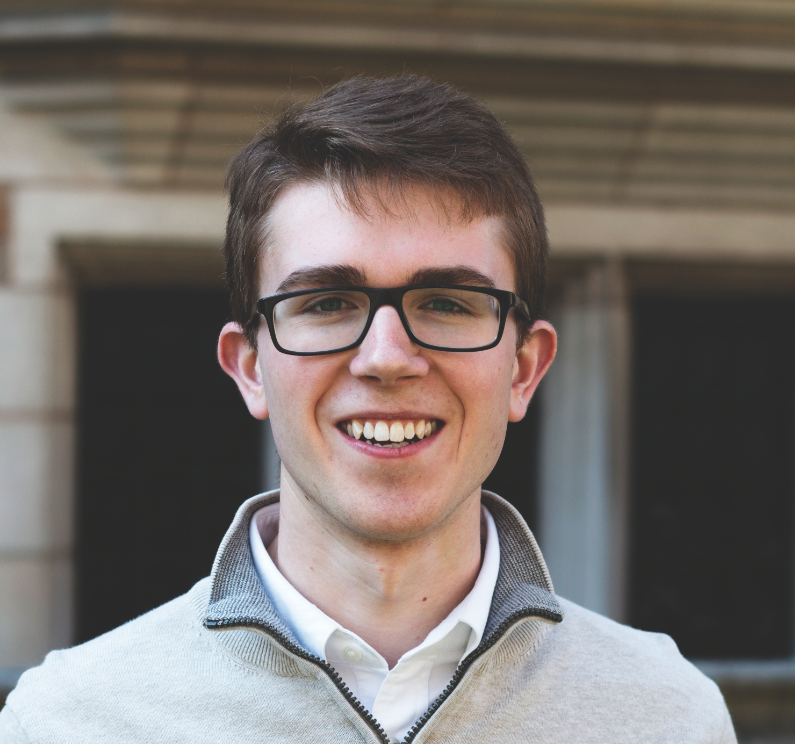
In a runoff election that closed Wednesday night, Christopher Bowman ’18 was elected Yale College Council vice president for the 2016–17 school year.
After last week’s general election ended in a close call between Bowman and Kevin Sullivan ’18, the two candidates again faced off in a two-day election that ended with Bowman taking 59.42 percent of the vote, while Sullivan won 40.58 percent. Bowman also led last week’s election, though by a narrower margin of just under 5 percentage points — not enough to secure an outright victory. In the runoff, 1,109 students voted and 53 abstained, compared to 2,633 votes cast in the general election, with 763 abstentions for the vice presidential race.
“I am obviously incredibly excited and incredibly honored that the student body put their trust in me for this next year to be their vice president,” Bowman told the News shortly after the polls closed. “I am super appreciative to everyone who came out to vote… I am really happy to see that so many people came out.”
Bowman also thanked the team that worked with him on the campaign and expressed his excitement to begin working with Peter Huang ’18 — who was elected president in the general election — to initiate the policies proposed during campaign season.
In his campaign, Bowman promised to use his managerial role in the Council to hold the YCC to high standards. In particular, he said he hopes to increase transparency and facilitate communication between Council members and the Yale public, as well as encourage representatives to engage more with their respective colleges. Another major component of Bowman’s campaign was the creation of a “director of student outreach” whose role would be to serve as a liaison between the YCC and the undergraduate community.
“The message of my campaign was a YCC that reaches out to all students and not just a select few,” Bowman said. “I think we were able to do that, and I want to continue doing that next year to ensure that we as the YCC don’t leave anyone behind.”
Sullivan extended his congratulations to Bowman but said he was disappointed in the results, especially given the fact that he was endorsed by a number of organizations, including the Yale Women’s Center and the News.
He also said that he saw himself as the more qualified candidate, but he acknowledged that Bowman could be seen as equally qualified by the Yale student body. He said he does not think he will be continuing involvement with the YCC next year.
“I think I was burnt out after seeing the runoff in the first place,” Sullivan said. “I didn’t campaign as hard as I could have. … I am just glad to have it behind me now.”
Huang said he has worked closely with both vice presidential candidates since his freshman year, and found Bowman’s platform to coincide with his own ideas.
“I think that is very good in the sense that our priorities are aligned,” Huang said of Bowman. “That makes it easier for us to focus on things that I want to focus on instead of having to figure out how we can compromise on our priorities.”
Though Huang said his vision for how the YCC would be structured is closer to Sullivan’s, he added that does not disagree with Bowman’s goals, and looks forward to working together to reduce inefficiencies within the Council next year. Ideas include changing the frequency and structure of meetings, as well as the duties of certain members on the Executive Board.
Sydney Wade ’18, who worked on Bowman’s campaign and currently serves as the Ezra Stiles representative on the YCC, said Bowman’s team used the runoff time to spread his platform to as many students as possible, especially in light of concerns about voter apathy, given the presidential elections had already concluded.
Of nine students interviewed, six said they were aware the runoff was happening, but only one had voted. Micah Osler ’18 said he voted in the general election but abstained during the runoff because he felt it would be unfair to vote, as he was not sufficiently educated on either candidate.
Kate Tanawattanacharoen ’19, another of Bowman’s team members, praised his organizational skills and understanding of administrative tasks — traits she said often go unappreciated in public elections, but that will be invaluable in the efficient running of the YCC.
“I know he and [Huang] will work really well together … producing and pushing for meaningful policy ideas that actually come to fruition,” Wade said. “I think both [Huang] and [Bowman] have really good ideas in terms of … increasing the transparency of YCC, making sure we are effective for the student body.”







